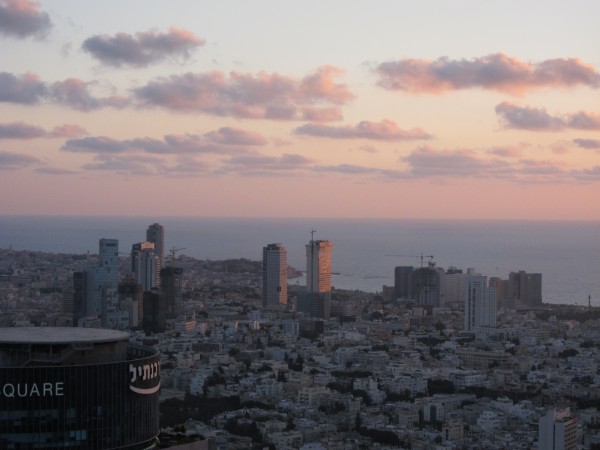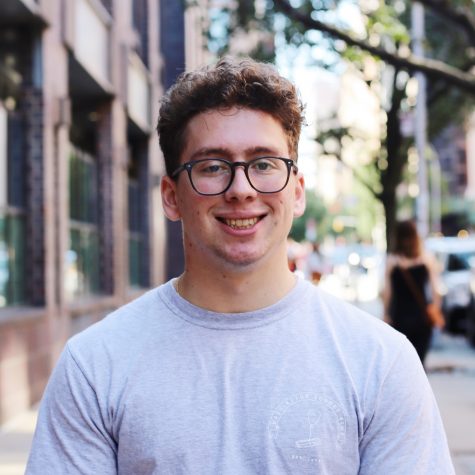A letter written by an unknown number of NYU Tel Aviv students voices dissent against a resolution which would have NYU divest from companies with interests in Israel.
Senators at-Large Rose Asaf and Bayan Abubakr, and Alternate Senator at-Large Leen Dweik presented the resolution on Nov. 2, expressing their view that NYU should no longer be associated with companies like General Electric, Caterpillar Inc. and Lockheed Martin due to their connections to the Israeli military, which the senators perceive as having violated Palestinian human rights. As the final vote — which will be by secret ballot on Dec. 6 — approaches, a letter by some students studying abroad in NYU Tel Aviv asks that members of the Student Government Association vote no.
“For the sake of both Israelis and Palestinians who live this conflict on a daily basis, we urge the members of the NYU Student Government Association to vote against the [Boycott, Divestment and Sanctions] Resolution,” the letter reads.
The resolution has been associated with the larger BDS movement, which calls for its members to support Palestinians through nonviolent means, largely by ending any involvement or investment with those associated with Israel. Members of pro-Israel groups on campus, such as NYU TorchPAC and NYU Realize Israel, have voiced their complaints against the movement and the resolution. These groups raise criticisms that the BDS movement is ineffective and hurts the Palestinians it is supposed to help, points that pro-Palestine groups such as Students for Justice in Palestine and Jewish Voices for Peace contend.
The letter by Tel Aviv students claims that student government representatives do not fully understand the issue, and says that they should visit Israel and Palestine before weighing in.
“The situation here is far more complex and real than a group of student legislatures at NYU can ever imagine,” the letter says. “Before making such a harsh statement, these legislatures should visit the region and make an honest attempt to hear and analyze the various perspectives surrounding the conflict.”
Asaf said that whether one has been in the region should not determine the validity of their views regarding the Israeli-Palestinian conflict.
“Telling someone that they need to visit somewhere is a classist argument and it doesn’t have any standing,” Asaf said.
Member of Students for Justice in Palestine and Alternate Senator at-Large Ben Zinevich also had an issue with the argument mentioned in the letter, noting that the Israeli government currently bans members of SJP and JVP from entering the country.
“Because of my support for BDS as a tool against apartheid, I am not allowed into [the] State of Israel,” Zinevich wrote in a message to WSN. “If Israel is concerned with dialogue, maybe they shouldn’t ban their dissenters.”
NYU updated its Travel Advisories last week to include the Tel Aviv study away site as one of many with policies that could prevent students from attending. This is in response to an amendment passed by the Israeli government in March of 2017 which bans those who have called for boycotts of Israel or been involved with groups that have.
“The university believes that societies benefit from the free movement of students, scholars, and ideas, and that obstacles to that movement also run contrary to the spirit of our policies regarding inclusion and accessibility,” the site states.
No known NYU students have been affected by the ban. Only one student, from the University of Florida, has been banned so far for boycotting Israel, and she was allowed into the country after the ruling was overturned.
President of NYU TorchPAC Rebecca Stern feels that students at Tel Aviv’s study away site should be heard, especially since the letter claims that the students “have worked with leaders from both communities in an attempt to ease the tension.”
“There is no one more appropriate to speak to the nature of this resolution than the students at NYU Tel Aviv,” Stern said in an email to WSN. “These students have spent a semester immersing themselves in the issues and understanding the complexities behind them.”
Asaf, however, does not agree with this point of view.
“Just because they’re staying in Tel Aviv for a semester doesn’t make them more qualified than Palestinians on this issue,” Asaf said. “They’ve been in Israel for three, four months. Palestinians have experienced this daily.”
Asaf also mentioned that the resolution does not call for a full-scale implementation of BDS, as it mainly requires the divestment of NYU from certain corporations associated with the movement. Zinevich voiced this concern as well.
“I would urge them to actually read the resolution and explain how developing a socially responsible investment policy in our endowment is not anything but wise,” Zinevich wrote.
A version of this article appeared in the Monday, Dec. 3 print edition. Email Victor Porcelli at [email protected].
























































































































































